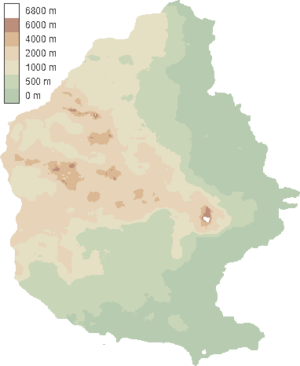Elysium: Difference between revisions
mNo edit summary |
mNo edit summary |
||
| Line 1: | Line 1: | ||
{{Nation |
{{Nation |
||
|nation = Elysium |
|nation = Elysium |
||
| − | |localized_name = |
+ | |localized_name = Elysio |
| − | |full_name = The Elysian |
+ | |full_name = The Neo-Elysian Polity |
| − | |flag = |
+ | |flag = Elysium_Polity_Flag.png |
|motto = "Sacrifice, Duty, Honour" |
|motto = "Sacrifice, Duty, Honour" |
||
|anthem = "Kevin MacLeod - Groove Grove" |
|anthem = "Kevin MacLeod - Groove Grove" |
||
| − | |map = Elysium_Globe.png |
+ | |map = Elysium_Globe.png |
|denonym = Elysian |
|denonym = Elysian |
||
| − | |capital = |
+ | |capital = Alta |
|languages = Elysian |
|languages = Elysian |
||
|currency = Rubies |
|currency = Rubies |
||
| Line 87: | Line 87: | ||
==Notable Events== |
==Notable Events== |
||
==About The Flag== |
==About The Flag== |
||
| + | [[File:Elysium_Polity_Flag.png|thumb|400px]] |
||
[[File:Elysium_Flag.png|thumb|400px]] |
[[File:Elysium_Flag.png|thumb|400px]] |
||
[[File:Elysium_theocrat_Flag.png|thumb|400px]] |
[[File:Elysium_theocrat_Flag.png|thumb|400px]] |
||
Revision as of 14:56, 23 October 2022
|
The Neo-Elysian Polity
Elysio
|
|||||
|---|---|---|---|---|---|
 |
|||||
| Motto | "Sacrifice, Duty, Honour" | ||||
| Common Name | Elysium | ||||
| Anthem | "Kevin MacLeod - Groove Grove" | ||||
 |
|||||
| Demonym | Elysian | ||||
| Official languages | Elysian | ||||
| Currency | Rubies | ||||
| Politics | |||||
| Capital | Alta | ||||
| Government | Representative Democracy / Unitary State | ||||
| Foundation | 2054 (current constitution) | ||||
| Preceded by | n/a | ||||
| Followed by | n/a | ||||
| Demography | |||||
| Ethnicities | Elysian 73.2% Westrayan 20.9% Zeouli 3.1% Bastian 1.5% Other 1.3% |
||||
| Population | 3,206,599 | ||||
| Area | 10,424km² km² | ||||
The Elysian Conclave, formerly the Theocratic Empire of Elysium, was a democratic oligarchy on the eastern coast of Kafrica. Bordered by Westray to the south and various Kafrican states throughout its history to the north and west, it was Led by Silvia Maxwell Kerman of the Elysian Loyalists party.
Etymology
###
Geography
###
Climate
###
Biodiversity
###
Urban Areas
###
Politics
Government
###
Subdivisions
###
Foreign Relations
###
Demographics
Languages
###
Education
###
Religion
###
Age
###
Military
Air Corp
###
Army
###
###
Orbcom
###
Economy
Taxation
###
Transport
###
Energy and Infrastructure
###
Trade
###
Science
###
History
Early Years and First Elysian Civil War
Formation
The formation of The Elysium Conclave occurred in 2049 during a relatively peaceful time within world politics. A large band of refugees settled on the Kafrican continent, forming The Elysium Conclave in an event known as the First Founding. Soon however, tensions fuelled by differences within the varied and diverse band of colonists led to riots and unrest across the fledgling nation. The Conclave's governing elite, focused on the struggle of providing the necessary infrastructure for its citizens, initially ignored their actions as a series of unsustainable and unrelated events. This assessment would prove fatal as the violent movement quickly grew in scope, eventually leading to the outbreak of the First Elysian Civil War within mere months of the country's establishment.
The Battle of the Emerald Field
The battle of the Emerald Field was the first and most significant battle in the Elysian war of Enlightenment. Traitor and Loyalist forces clashed again and again over the fields of Elysium for months locked in a war of attrition and trenches. Various new weapons were employed bey both sides in attempt to break the stalemate, but all were deemed ineffectual, often being a more of a threat to their wielders than the enemy. Eventually, a breakthrough was made by the Loyalists, but at a tremendous cost. The Loyalist forces suffered casualties of approximately 90% and conceding ground and many other minor victories elsewhere. While the victory of the Loyalists succeeded in forcing the Traitors into limited retreat in the theater, they ultimately lost the battle of hearts and minds over the Elysian populace. Propaganda campaigns framed the war as a suppression of religious freedom, which many citizens had initially fled their former homes to avoid. Though technically prevailing in the Emerald Fields, the campaign would be considered a pyrrhic victory by Traitor forces for allowing them the time necessary to shore up public support and force the Loyalists into increasingly draconian and unpopular measures to keep its citizens in line.
Purges and Mass Defections
During the final phase of the war, the Loyalists became increasingly frenzied and dictatorial, going as much as to purge the capital of anyone who believed in Deus. This religious genocide only further fuelled the propaganda machine of the Traitors, at this point having earnt the loyalty of nearly the entire nation. Meanwhile, further astray in rural areas, military units were frequently given essentially free reign, recieving confused instructions or none at all from Loyalist leadership. While some clung to the spirit of their superiors actions elsewhere and engaged in further acts of religious persecution, many sensed the writing on the wall and defected, gave up their weapons and surrended, or simply returned home to their families.
Loyalist Defeat at Olympia
The final battle of the First Elysian Civil War occurred at the besieged city of Olympia. Under the directives of the increasingly desperate oligarchy the city had been transformed into an impromptu fortress, surrounded by armoured walls in places up to 5 feet thick. Within them the population was brutally subjugated, with citizens being taken into killing camps at gunpoint at the slightest suspicion of holding religious beliefs, ostensibly to prevent more joining or assisting the Traitor cause but largely in a desperate bid to extend the lifespan of the city's dwindling resources. By the time the depleted but well provided and motivated Traitor forces arrived at the Capital it could no longer be considered a city, just a massive fortifcation. As one last desperate ploy, the gates had seemingly been left open and almost undefended, in the hope of attracting the army through the gates en masse only to them in a massive storm of fire from both sides. The plan failed. When several squads were sent through and were killed to a kerbal, the Traitors settled down for a siege and turned their attention instead to breaching the walls of the city themselves. Many advocated to simply wait while the Loyalist's supplies ran out, but it was eventually agreed to continue attempts to breach the capital and bring about a hastened end to the war purely to sooner relieve the civilians living in horrific conditions within. An attempt to covertly melt a hole in the wall at its thinnest point using an experimental repurposed commerical cutting device resulted in large detonation after overheating and killing its operators, but successfully blew an entrance point in a poorly manned section of the defenses open. Once the wall was breached, Loyalist forces were outmaneuvered and outgunned by the Traitor army unexpectedly entering the city in large numbers. During the ensuing fierce urban fighting, Traitor special forces stormed the base of the command tower, planting large quantites of explosives around the building. Before the Chancellor and the oligarchy's final orders could be sent out and acted upon the soldiers evacuated the area around the tower and detonated the charges, bringing it down, decapitating the leadership of the Loyalists and ending the war.




